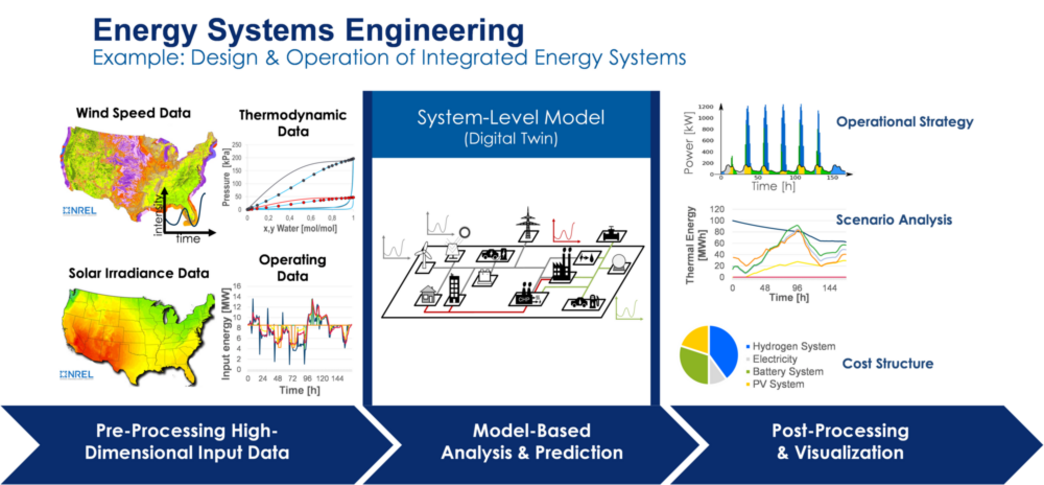A major societal challenge is the invention, development and deployment of novel renewable energy conversion systems. This requires on the one hand the design and control of decentralized, integrated energy systems and on the other hand the design and use of novel materials and manufacturing processes.
For the first objective, massive amounts of operational data must be harvested, pre-processed and fed to high-performance numerical simulation and optimization algorithms combined with data-driven modeling. For the second objective, a computational materials discovery infrastructure needs to be established, which includes numerical tools such as quantum mechanical simulation engines on high-performance computers. Concepts and tools of big-data analytics will allow to arrange, organize and navigate the new data, and predict and discover new materials of interest. Gathering all these heterogeneous data, extracting the relevant features, and formulating a computational framework for rational holistic design and operation is a major area of research that is fundamental to the success of a transition to a decarbonized, reliable and affordable energy system.





